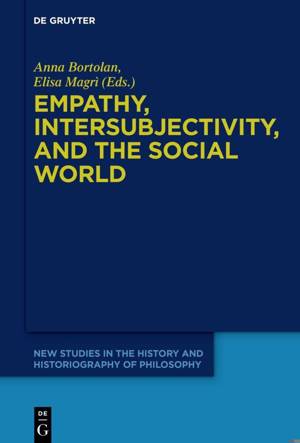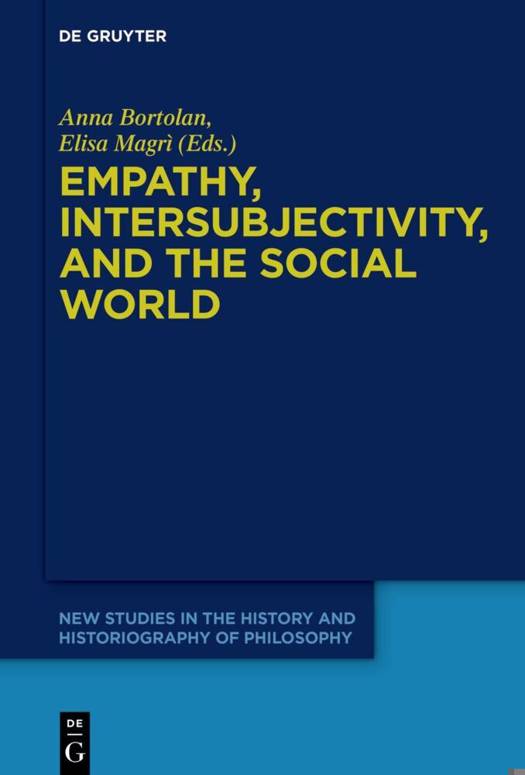
- Retrait gratuit dans votre magasin Club
- 7.000.000 titres dans notre catalogue
- Payer en toute sécurité
- Toujours un magasin près de chez vous
- Retrait gratuit dans votre magasin Club
- 7.000.0000 titres dans notre catalogue
- Payer en toute sécurité
- Toujours un magasin près de chez vous
Empathy, Intersubjectivity, and the Social World
The Continued Relevance of Phenomenology. Essays in Honour of Dermot Moran
Description
The volume gathers together over twenty contributions that emerged from a conference held in in honour of Dermot Moran on the occasion of his retirement from University College Dublin. The book explores the contribution of phenomenology to empathy, intersubjectivity, affectivity, and the constitution of the cultural and social world, from both a historical and an applied philosophical perspective. Theoretical and methodological differences in approach notwithstanding, phenomenologists have converged in the recognition that self and others are fundamentally related, and have provided fine-grained accounts of the origin, forms, and implications of such relationship. The volume critically reconstructs and further develops central aspects of this body of research within a pluralistic framework. It offers a renewed investigation of the work of classical phenomenologists like Husserl, Heidegger, Sartre, and Merleau-Ponty, as well as an original application of phenomenological concepts and theories to contemporary discussions on intentionality, culture, emotions, and morality. The book provides insights for scholars in phenomenological philosophy as well as in philosophy of mind and interpersonal and social experience.
Spécifications
Parties prenantes
- Editeur:
Contenu
- Nombre de pages :
- 504
- Langue:
- Anglais
- Collection :
- Tome:
- n° 9
Caractéristiques
- EAN:
- 9783111355542
- Date de parution :
- 24-10-23
- Format:
- Livre broché
- Format numérique:
- Trade paperback (VS)
- Dimensions :
- 156 mm x 234 mm
- Poids :
- 766 g

Les avis
Nous publions uniquement les avis qui respectent les conditions requises. Consultez nos conditions pour les avis.





